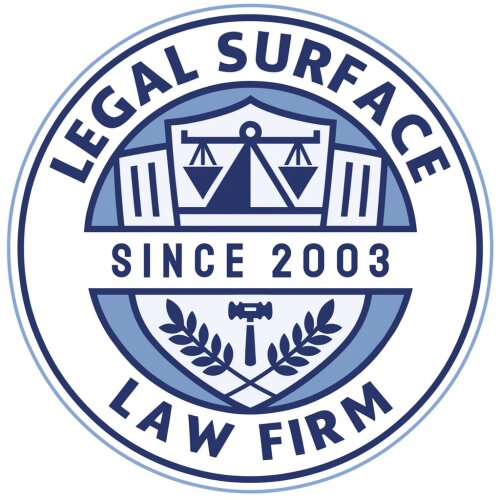Best Constitutional Law Lawyers in Srinagar
Share your needs with us, get contacted by law firms.
Free. Takes 2 min.
List of the best lawyers in Srinagar, India
About Constitutional Law in Srinagar, India
Constitutional Law in India is the branch of law that deals with the interpretation and implementation of the Constitution of India. It covers fundamental rights, the relationship between the central government and the states, and the division of powers among various organs of the government. Srinagar, as the largest city and summer capital of the Union Territory of Jammu & Kashmir, operates under the Indian Constitution, with special legal considerations owing to its unique history and governance structures, particularly after the abrogation of Article 370 in August 2019. This transition has brought constitutional changes that directly impact residents and legal matters in Srinagar.
Why You May Need a Lawyer
There are several situations where you may require the assistance of a Constitutional Law lawyer in Srinagar. Common scenarios include:
- Seeking enforcement of Fundamental Rights (such as equality, freedom of speech, or right to life).
- Challenging actions or decisions by government authorities you believe are unconstitutional.
- Understanding the impact of recent constitutional changes (especially after the reorganization of Jammu & Kashmir).
- Filing or defending Public Interest Litigations (PILs).
- Dealing with issues related to citizenship, residency, or property rights due to changes in constitutional provisions.
- Clarifying conflicting state and central laws post the change of legal status for the region.
- Legal guidance involving government contracts and services affected by constitutional provisions.
Local Laws Overview
Srinagar, and broadly Jammu & Kashmir, has undergone significant legal transformation over recent years. The abrogation of Article 370 and subsequent reorganization as a Union Territory have altered the constitutional landscape profoundly. Now, the Indian Constitution applies fully to the region, and most central laws are in force. However, there are special laws and provisions that continue to hold importance:
- All fundamental rights provided by the Indian Constitution are now available to residents.
- Property rights, especially for non-residents and women, have been a point of discussion and amendment.
- The jurisdiction of the Supreme Court of India and other constitutional authorities extends fully to Srinagar.
- There may still be transitional issues regarding old state laws versus new central laws.
- Certain laws related to citizenship, land ownership, and permanent resident status have changed, affecting a wide section of the populace.
Frequently Asked Questions
What are Fundamental Rights, and are they fully applicable in Srinagar?
Fundamental Rights are the basic human rights granted by the Indian Constitution to every citizen. After the abrogation of Article 370, these rights are fully applicable in Srinagar and the rest of Jammu & Kashmir.
Can I file a Public Interest Litigation (PIL) in Srinagar?
Yes, any individual or group can file a PIL in the courts of Srinagar if it concerns a matter of public interest related to constitutional rights or governance.
What changed after the abrogation of Article 370 for residents of Srinagar?
Article 370 granted special status to Jammu & Kashmir, allowing it to have its own constitution and autonomy over internal matters. Its abrogation means central laws now apply equally, and residents have the same rights and duties as citizens in other parts of India.
How do I challenge a government action I believe is unconstitutional?
You can approach the High Court or the Supreme Court via a writ petition. A Constitutional Law lawyer can help you draft and file the appropriate petition.
Can non-residents now purchase property in Srinagar?
Yes, after the changes in property laws following the abrogation of Article 370, non-residents can legally purchase property in Srinagar, subject to specific procedures and rules.
Do local courts have the power to enforce constitutional rights?
Yes, the Jammu & Kashmir High Court and the Supreme Court of India have the authority to enforce constitutional and fundamental rights.
Are there any special protections for minorities in Srinagar under Constitutional Law?
Yes, the Indian Constitution provides special rights and protections for minorities, and these are now fully extended to Srinagar.
How are disputes between state and central laws resolved in constitutional matters?
Such disputes are often decided by the judiciary, interpreting whether a state law is in conflict with central law or the Constitution. The Supreme Court is the final authority on such matters.
What is the role of the District Legal Services Authority (DLSA) in Srinagar?
The DLSA provides free legal aid and services to eligible persons and facilitates the resolution of cases involving constitutional or other legal issues.
Where can I get reliable legal advice for constitutional matters in Srinagar?
You can consult experienced constitutional lawyers, the High Court Legal Services Committee, or local law associations. Government legal aid services are also available for those who qualify.
Additional Resources
Here are some important resources and organizations for those seeking assistance with Constitutional Law in Srinagar:
- Jammu & Kashmir High Court: Handles constitutional cases and writ petitions.
- District Legal Services Authority (DLSA): Provides free legal aid and guidance.
- Supreme Court of India: For appeals and significant constitutional matters.
- Bar Association of Srinagar: Useful for finding practicing constitutional law experts.
- State Human Rights Commission: For issues involving violation of fundamental rights.
- Ministry of Law & Justice, Government of India: Offers guidance on legal reforms and constitutional provisions.
Next Steps
If you need legal help with a constitutional issue in Srinagar, here are steps to follow:
- Identify the nature of your issue (e.g., violation of rights, property matters, government action).
- Gather all relevant documents and facts related to your case.
- Consult a qualified constitutional lawyer practicing in Srinagar for guidance.
- If eligible, approach the District Legal Services Authority for free legal aid.
- For urgent relief, consider filing a writ petition in the Jammu & Kashmir High Court.
- Stay informed about ongoing legal changes in the region by following governmental updates or consulting with legal professionals.
Lawzana helps you find the best lawyers and law firms in Srinagar through a curated and pre-screened list of qualified legal professionals. Our platform offers rankings and detailed profiles of attorneys and law firms, allowing you to compare based on practice areas, including Constitutional Law, experience, and client feedback.
Each profile includes a description of the firm's areas of practice, client reviews, team members and partners, year of establishment, spoken languages, office locations, contact information, social media presence, and any published articles or resources. Most firms on our platform speak English and are experienced in both local and international legal matters.
Get a quote from top-rated law firms in Srinagar, India — quickly, securely, and without unnecessary hassle.
Disclaimer:
The information provided on this page is for general informational purposes only and does not constitute legal advice. While we strive to ensure the accuracy and relevance of the content, legal information may change over time, and interpretations of the law can vary. You should always consult with a qualified legal professional for advice specific to your situation.
We disclaim all liability for actions taken or not taken based on the content of this page. If you believe any information is incorrect or outdated, please contact us, and we will review and update it where appropriate.









